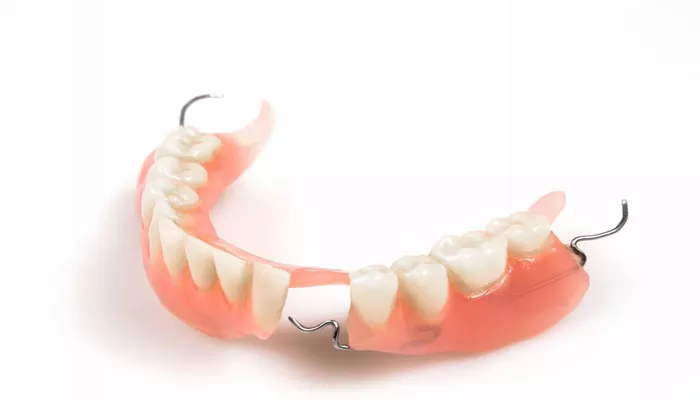Dentures are a vital dental appliance for many individuals who have lost some or all of their natural teeth due to advanced gum disease, tooth decay, or injury. They restore chewing function, improve aesthetics, and maintain oral health. However, for dentures to function optimally and provide maximum comfort, they need to be securely attached to the jawbone or the surrounding tissues. This is where fixtures come in. Fixtures are devices used to anchor dentures in place, ensuring they stay stable and do not move around during chewing, talking, or other oral activities. In this guide, we will explore the various types of fixtures available for dentures, their pros and cons, and what factors to consider when choosing the best fixtures for your needs.
What Are The Best Fixtures for Dentures?
Clasp-Retained Dentures
Clasp-retained dentures are one of the most common types of fixtures used for dentures. They use metal clasps that fit around the natural teeth or dental implants adjacent to the edentulous area (the area where teeth are missing). These clasps provide a secure hold for the dentures, preventing them from moving around.
Pros
- Easy to remove and clean.
- Less invasive than other fixtures.
- Cost-effective.
Cons
- Visible metal clasps can affect aesthetics.
- May cause discomfort or irritation to the surrounding tissues.
- Limited stability compared to other fixtures.
Implant-Supported Dentures
Implant-supported dentures are a more advanced and stable option for denture wearers. They use dental implants, which are artificial tooth roots made of titanium, to support the dentures. The implants are surgically placed into the jawbone and allowed to heal for several months. Once they have fused with the bone (a process called osseointegration), the dentures can be attached to the implants using various connectors.
Pros
- Maximum stability and comfort.
- Improved chewing function.
- Better aesthetics as the implants are not visible.
Cons
- More invasive and expensive than other fixtures.
- Requires surgical procedures and a longer healing period.
- Not suitable for everyone, particularly those with poor bone density or medical conditions that contraindicate surgery.
Adhesive-Retained Dentures
Adhesive-retained dentures use dental adhesives to keep the dentures in place. These adhesives are applied to the fitting surface of the dentures and create a strong bond with the gums and surrounding tissues. They are available in various forms, including creams, powders, and wafers.
Pros
- Easy to use and apply.
- Provides a secure hold for the dentures.
- Cost-effective.
Cons
- Can be messy and difficult to remove.
- May cause irritation or discomfort to the gums.
- Not as stable as implant-supported or clasp-retained dentures.
Bar-and-Clip Retained Dentures
Bar-and-clip retained dentures use a metal bar that is attached to two or more dental implants. The dentures have clips that snap onto the bar, securing them in place. This system provides good stability and is easier to remove and clean than implant-supported dentures.
Pros
- Good stability and comfort.
- Easier to remove and clean than implant-supported dentures.
- Cost-effective compared to full implant-supported dentures.
Cons
- Visible metal bar can affect aesthetics.
- May cause discomfort or irritation to the surrounding tissues.
- Requires surgical placement of implants.
Factors to Consider When Choosing Fixtures
When choosing the best fixtures for your dentures, several factors need to be considered to ensure you make an informed decision. These factors include:
Budget
The cost of fixtures can vary significantly depending on the type and complexity of the system. It’s important to consider your budget and determine how much you are willing to spend on fixtures.
Medical History
Your medical history and overall health can affect your suitability for certain types of fixtures. For example, if you have a medical condition that contraindicates surgery, implant-supported dentures may not be an option for you.
Bone Density
The density of your jawbone is an important factor in determining the suitability of implant-supported dentures. If you have poor bone density, additional procedures such as bone grafting may be required to make implants viable.
Aesthetics
The visibility of the fixtures can affect the aesthetics of your smile. If you are concerned about the appearance of metal clasps or bars, you may prefer a more discreet option such as implant-supported dentures.
Lifestyle
Your lifestyle and daily activities can also affect your choice of fixtures. For example, if you have a physically demanding job or participate in sports, you may require more stable and durable fixtures to support your dentures.
Dental Health
The health of your remaining teeth and gums can also play a role in determining the best fixtures for your dentures. If you have gum disease or decayed teeth, these issues may need to be addressed before you can proceed with fixture placement.
Conclusion
Choosing the best fixtures for your dentures is a complex decision that requires careful consideration of various factors. By understanding the different types of fixtures available and their pros and cons, you can make an informed decision that aligns with your budget, medical history, bone density, aesthetics, lifestyle, and dental health. Remember, the goal is to find fixtures that provide maximum stability, comfort, and aesthetics while minimizing discomfort and irritation. With the right fixtures in place, you can enjoy the full benefits of your dentures and maintain optimal oral health.
Related topics:

